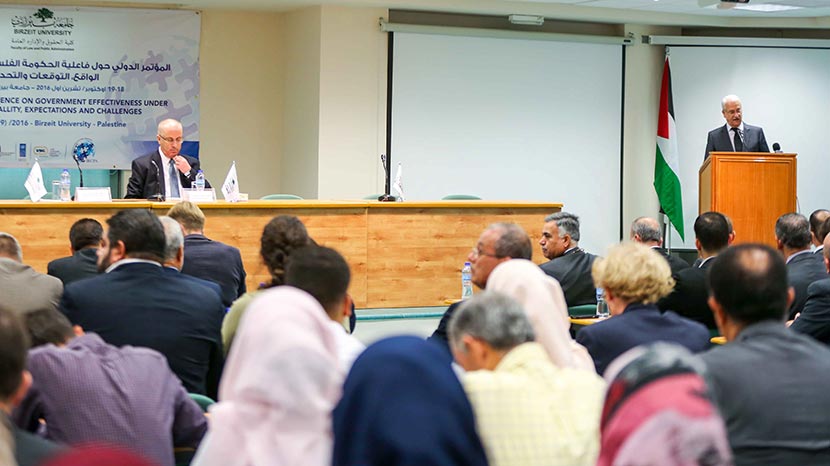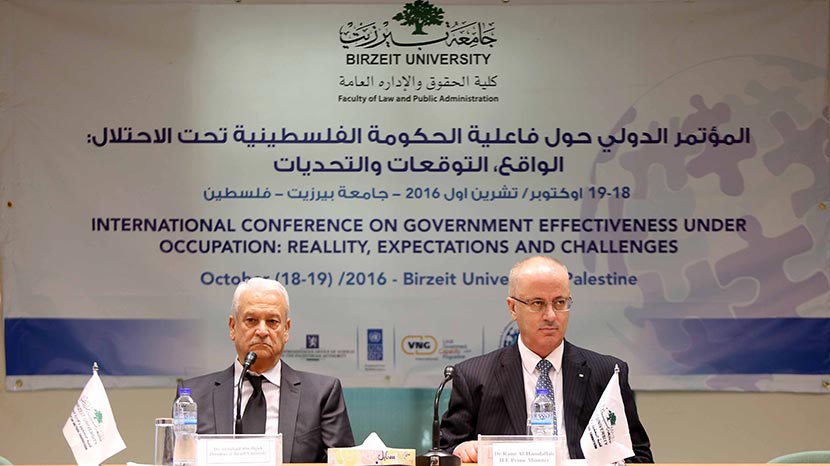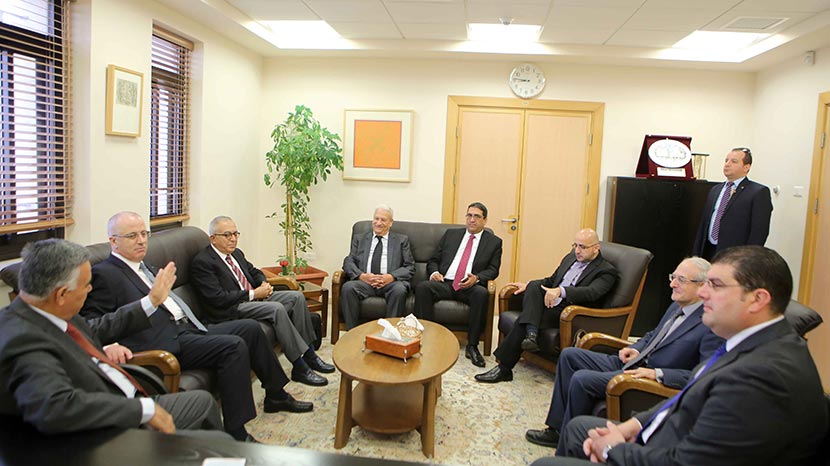First International Conference on Effective Governance Addresses Occupation, Internal Disputes
The Faculty of Law and Public Administration at Birzeit University held on October 18th and 19th, 2016 the first international conference to discuss the question of government effectiveness under occupation.
The conference, which was organized by the Representative Office of Norway to the Palestinian Authority, the United Nations Development Program (UNDP) and VNG International, discussed two main topics, the process of creating public policy under the occupation and its effects on sustainability and the stability of policies, and a review of the reality and future of local governance in Palestine. Panelists described international experiences in public administration and local governance, focusing on the experiences of South Africa and Slovakia.
Prime Minister Rami Hamdallah, Birzeit University president Abdullatif Abuhijleh, former Prime Minister Salam Fayyad, and Faculty of Law and Public Administration dean Yasser Amouri attended the conference, welcoming the local and international academics, researchers and officials who presented the reality, expectations and challenges facing the public sector and policymakers in Palestine.
President Abuhijleh described the university’s outreach and mission of engagement and its efforts to work closely with the local and international community to bring improvements and modernity to the operating Palestinian government. “Sustainable and equitable development cannot be accomplished without the expertise of our graduates who collaborate with and learn from local and international peers,” he said.
Prime Minister Hamdallah told conference attendees that the Palestinian government is working tirelessly in collaboration with the private sector and civil society to develop an action plan that can boost development, governance, and institutional building.
Hamdallah then emphasized the need to enunciate a national vision that can overcome the challenges that hinder the development process and efforts to develop the attributes of statehood. He underscored the importance of this international conference, assuring that the outcomes of its platform will create a comprehensive framework that can contribute to the policymaking process.
Keynote speaker Salam Fayyad talked about the strategies needed to build capacities and reform Palestinian public administration. Fayyad argued that “unity” and internal Palestinian reconciliation that is built on accepting others and their differences will pave the way to sustainable development. Fragmentation between Palestinians, according to Fayyad, intensifies the obstacles facing Palestinian development and institutional building.
The former prime minister suggested that academics and students conduct scientific research and exchange knowledge and expertise on the best strategy for reuniting Palestinians and thereby create a concrete methodology for strengthening Palestine’s institutions and public sector.
Dean Amouri said that the conference seeks to provide educational opportunities for scholars and practitioners in a collaborative environment by educating the general public and members of the public sector to enrich their experiences and help strengthen the work of our institutions and effectiveness of governance.
“It is a proud moment in which Birzeit University organizes an international conference in order to recommend policies to cope with the obstacles facing development in Palestine,” Amouri added.
Norway’s representative to the Palestinian Authority Hilde Haraldstad said that good and effective governance are vital for building concrete institutions and the public sector. She emphasized her country’s efforts to contribute to the establishment of a Palestinian state and achieving sustainable development, which will only be reached through combined efforts between private, public and civil institutions that produce strategic outcomes and develop governance tools in making policy.
UNDP Representative Nader Atta also spoke, describing how the UNDP works extensively with the Palestinian government to develop strategies and plans that will enable it to overcome the obstacles it faces in the development process, especially the occupation and Palestinian internal fragmentation.










